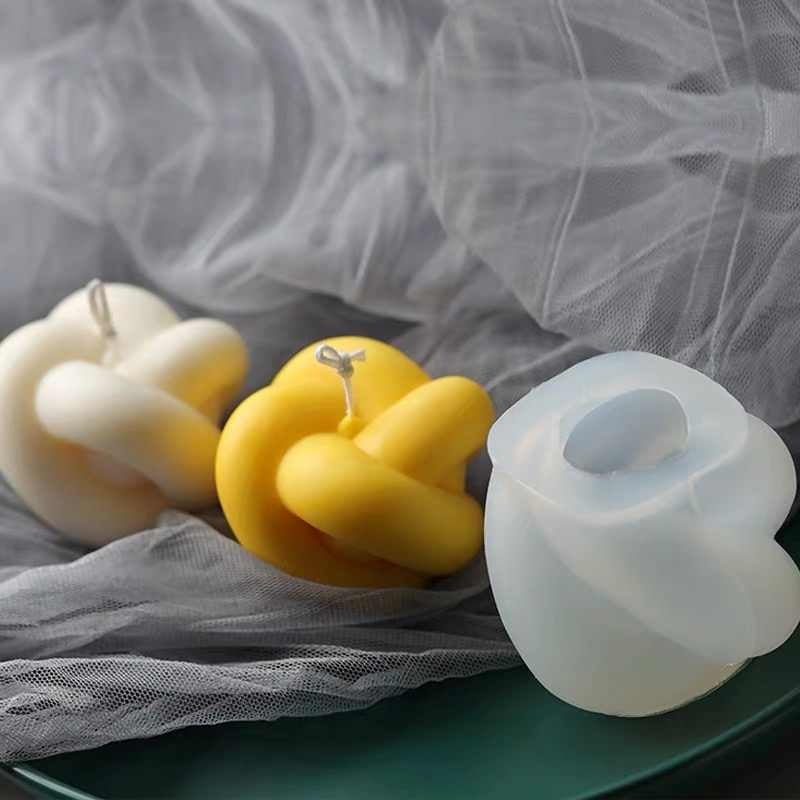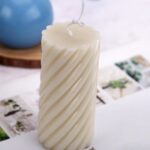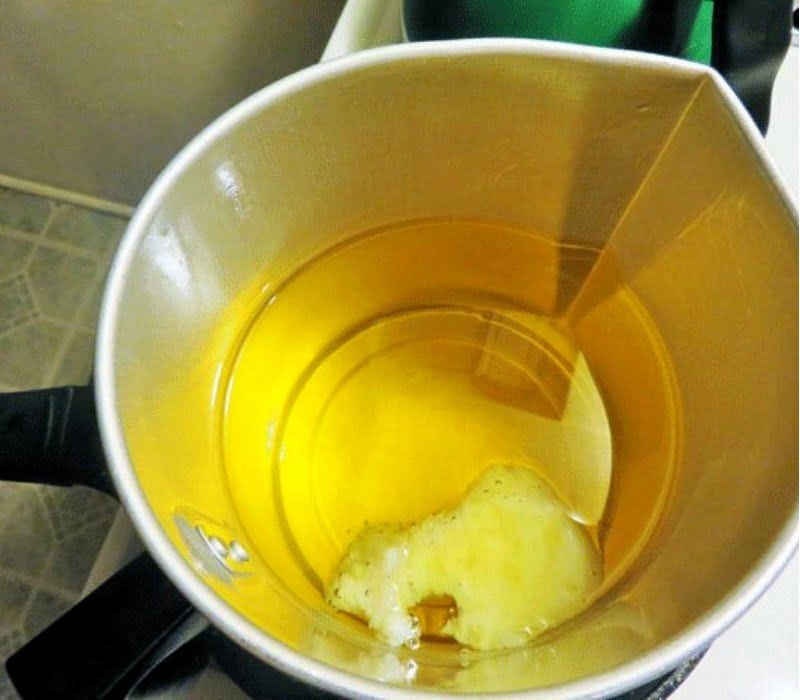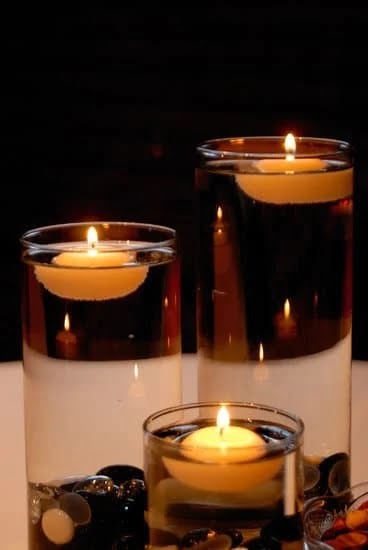Are you wondering, “Can I use regular essential oils for candle making“? Understanding the difference between regular essential oils and candle-making essential oils is crucial for achieving high-quality candles with desired scents. While regular essential oils may be suitable for certain uses, using specific essential oils designed for candle making is important to ensure safety, quality, and effectiveness.
One of the key differences between regular essential oils and those specifically made for candle making lies in their composition. Candle-making essential oils are formulated to withstand heat and are designed to disperse evenly throughout the wax when the candle is burning. On the other hand, regular essential oils may not have the same heat resistance properties and could potentially affect the quality of the candle.
Using regular essential oils in candle making can pose potential risks such as uneven distribution of scent, decreased scent throw, or even causing a fire hazard if they are not able to withstand high temperatures. Additionally, using non-candle-making essential oils may alter the chemical composition of the wax, affecting the overall quality and performance of the candle.
This emphasizes the importance of using specific essential oils that are intended for candle making purposes. It’s important to consider these factors before proceeding with using regular essential oils in your candle-making endeavors.
The Importance of Using Specific Essential Oils for Candle Making
Using specific essential oils for candle making is crucial for producing high-quality and safe candles. Regular essential oils, which are typically used for aromatherapy and other applications, are not suitable for candle making due to their composition. Candle-making essential oils are specially formulated to withstand the heat of the melting wax and the burning wick, ensuring a consistent and long-lasting fragrance.
Here are some key reasons why it is important to use specific essential oils for candle making:
1. Heat resistance: Candle-making essential oils are designed to withstand the high temperatures involved in the candle-making process. Regular essential oils may evaporate too quickly or lose their scent when exposed to heat, resulting in a weaker fragrance throw.
2. Fragrance retention: Specific essential oils for candle making are formulated to retain their scent when mixed with wax and burned as a candle. Using regular essential oils may lead to an inconsistent or weak fragrance in the finished product.
3. Safety concerns: Regular essential oils may contain ingredients that can be flammable when exposed to heat, posing a safety risk when used in candles. Candle-making essential oils are tested and approved for use in candles, ensuring that they do not pose a fire hazard.
When it comes to selecting essential oils for candle making, it’s important to choose high-quality options that are specifically intended for this purpose. Look for reputable suppliers that offer a wide selection of candle-making essential oils in various scents. Be sure to read product descriptions and labels carefully to ensure that you are purchasing the right type of essential oil for your candles.
In addition, consider alternative options for scent in candle making if you prefer not to use traditional essential oils. Fragrance oils specifically designed for candle making can provide a wide range of scents and often have a more concentrated fragrance than traditional essential oils. Experimenting with different fragrance options can add versatility and creativity to your candle-making endeavors while ensuring consistent results.
Potential Risks of Using Regular Essential Oils in Candle Making
Chemical Composition and Flammability
Regular essential oils are typically designed for use in aromatherapy, skincare, and other topical applications. However, when it comes to candle making, the chemical composition of regular essential oils can pose a significant risk. Unlike candle-making essential oils, regular essential oils may contain components that are not suitable for burning. Some essential oils may contain flammable components, which can lead to increased fire hazards when used in candles.
Safety Concerns
Additionally, regular essential oils may not be formulated to withstand the heat generated by a burning wick. When exposed to high temperatures over an extended period, these oils could release potentially harmful compounds into the air. This poses health risks to individuals who inhale the fumes from candles made with regular essential oils. It is crucial to prioritize safety when creating candles, and using non-candle-making essential oils can increase the likelihood of accidents or adverse health effects.
Impact on Candle Performance
Furthermore, using regular essential oils in candle making
Can Regular Essential Oils Affect the Quality of the Candle?
When it comes to candle making, the quality of the essential oils used can have a significant impact on the overall quality of the candle. Regular essential oils, which are typically used for aromatherapy and other applications, may not be suitable for candle making. The composition of regular essential oils is different from those specifically formulated for candle making, which can affect the performance and characteristics of the candle.
The Impact on Scent
Using regular essential oils in candle making can affect the scent throw and overall fragrance of the candle. Candle-making essential oils are designed to disperse evenly throughout the wax, resulting in a stronger and more long-lasting scent. Regular essential oils may not blend well with the wax, leading to an uneven distribution of fragrance and potentially compromising the overall quality of the scent.
Potential Effects on Burn Time and Performance
In addition to affecting the scent, using regular essential oils in candle making can also impact burn time and overall performance. Candle-making essential oils are formulated to withstand higher temperatures without affecting their scent or causing them to evaporate too quickly. Using regular essential oils may result in a shorter burn time or uneven burning due to their different composition.
In order to ensure that your candles maintain a high level of quality, it is important to use specific essential oils that are formulated for candle making. This will not only enhance the aroma and performance of your candles but also provide a better overall experience for those who enjoy them.
Finding High-Quality Essential Oils for Candle Making
When it comes to finding high-quality essential oils for candle making, there are a few key factors to consider. Not all essential oils are created equal, and choosing the right ones can make a big difference in the quality and scent of your candles. Here are some tips for finding the best essential oils for your candle-making needs:
- Look for reputable suppliers: When shopping for essential oils, it’s important to choose a supplier that is known for their high-quality products. Look for suppliers who specialize in candle-making essential oils, as they will have a better understanding of the specific requirements for this purpose.
- Check the purity: High-quality essential oils should be pure and free from any additives or synthetic ingredients. Be sure to check the purity of the oils you are considering, as this can greatly impact the scent and performance of your candles.
- Consider the scent profile: Different essential oils have different scent profiles, so it’s important to choose ones that complement each other and create a balanced fragrance for your candles. Consider experimenting with different combinations to find the perfect scent for your products.
In addition to these tips, it’s also important to consider any potential allergies or sensitivities when choosing essential oils for candle making. Some people may have reactions to certain scents, so it’s important to take this into account when selecting your fragrance oils.
By taking the time to find high-quality essential oils that are well-suited for candle making, you can ensure that your products are not only safe but also have a pleasant and long-lasting fragrance.
Alternative Options for Scent in Candle Making
When it comes to finding alternative options for scent in candle making, there are a few key alternatives to regular essential oils that can be considered. While regular essential oils may not be suitable for candle making due to their potential risks and effects on the quality of the candle, there are other safe and effective options available.
One alternative option for scent in candle making is fragrance oils. Unlike regular essential oils, fragrance oils are specifically designed for use in candles and have been formulated to withstand the heat of the melting wax without losing their scent. These oils also come in a wide variety of scents, allowing candle makers to experiment with different fragrances and create unique combinations for their candles.
Another alternative option is natural extracts such as vanilla extract or almond extract. While not as concentrated as essential oils, natural extracts can still provide a pleasant scent when used in candle making. It’s important to note that natural extracts may not be as potent as essential oils, so using a larger quantity may be necessary to achieve the desired level of scent in the candles.
A third alternative option is dried herbs and spices, which can add both visual interest and a subtle scent to homemade candles. Adding dried lavender buds, rose petals, cinnamon sticks, or cloves to the melted wax before pouring it into the mold can infuse the candles with a natural fragrance that is both beautiful and aromatic.
| Alternative | Description |
|---|---|
| Fragrance Oils | Specially formulated for candle making, withstand heat without losing scent |
| Natural Extracts | Not as potent as essential oils but still provide pleasant scent, may require larger quantity |
| Dried Herbs and Spices | Adds visual interest and subtle scent to homemade candles |
Tips for Using Essential Oils Effectively in Candle Making
Using essential oils in candle making can greatly enhance the overall experience of creating and enjoying your homemade candles. However, it is important to use specific essential oils that are designed for candle making to ensure quality and safety. Regular essential oils, which are commonly used in aromatherapy and other applications, may not be suitable for use in candle making.
When using regular essential oils for candle making, it is important to understand the difference between these oils and those specifically formulated for this purpose. Regular essential oils may not be designed to withstand the heat of the candle-making process, resulting in a less potent or even unpleasant scent when the candle is burned. Additionally, regular essential oils may not mix well with the wax and could potentially affect the quality of the candle.
It is crucial to use high-quality, candle-making essential oils when creating scented candles. These specific oils have been developed to withstand high temperatures and blend seamlessly with wax, ensuring a consistent and long-lasting fragrance when the candle is lit. Look for reputable suppliers that offer a wide variety of scents specifically crafted for candle making to ensure the best results.
Common Misconceptions About Using Regular Essential Oils for Candle Making
One common misconception about using regular essential oils for candle making is that they will provide the same quality and scent as essential oils specifically made for candle making. However, this is not the case. Regular essential oils are designed for aromatherapy and skin application, not for burning in candles. Candle-making essential oils are formulated to withstand high temperatures without losing their fragrance or causing potential safety hazards.
Another misconception is that regular essential oils can be used interchangeably with candle-making essential oils. This can lead to disappointment in the final product, as regular essential oils may not blend well with the wax, resulting in a weak or unpleasant scent throw when the candle is lit. It’s crucial to use the correct type of essential oil for candle making to achieve the desired fragrance strength and quality.
There is also a misconception that using regular essential oils for candle making will save money. While it may seem like a cost-effective option at first, using regular essential oils can actually be more expensive in the long run due to the amount required to achieve a noticeable scent in the candles. Additionally, there is a risk of compromising the quality and safety of the candles by using non-candle-making essential oils.
Conclusion
In conclusion, it is important to recognize the difference between regular essential oils and those specifically designed for candle making. While regular essential oils can provide a pleasant aroma, they are not formulated to withstand the heat of a burning candle. Using regular essential oils in candle making can pose potential risks such as decreased scent throw, reduced burn time, and even safety hazards.
When considering the quality of your candles, it is crucial to use high-quality essential oils that are specifically made for candle making. This ensures that your candles not only smell great but also burn safely and effectively. Investing in these specialized oils will ultimately result in a superior finished product that meets both aesthetic and practical standards.
While the allure of using regular essential oils for candle making may be tempting, it is important to take into account the potential downsides. Instead, explore alternative options for scent in candle making such as fragrance oils or essential oil blends specifically formulated for this purpose. By doing so, you can ensure that your candles emit a consistent and pleasing aroma while maintaining their quality and safety standards.
Frequently Asked Questions
Can You Use Regular Essential Oils in Candles?
Yes, regular essential oils can be used in candles. However, it’s important to note that not all essential oils are suitable for candle making, as some may have a low flash point and could be a fire hazard. It’s recommended to use essential oils specifically designed for candle making to ensure safety and proper blending with the wax.
Is It Better to Use Fragrance Oil or Essential Oil for Candle Making?
When it comes to candle making, both fragrance oils and essential oils have their own advantages. Fragrance oils often offer a wider variety of scents and tend to be more affordable, making them a popular choice for many candle makers.
On the other hand, essential oils are derived from natural sources and are preferred by those who prioritize using natural ingredients in their candles.
Is Peppermint Essential Oil Safe for Candles?
Peppermint essential oil can be safe for use in candles when used properly. It’s important to follow recommended guidelines for the amount of oil to add per ounce of wax to avoid overpowering the scent or causing irritation when burned. Additionally, using high-quality peppermint essential oil from a reputable source will ensure the best results in candle making.

Welcome to my candle making blog! In this blog, I will be sharing my tips and tricks for making candles. I will also be sharing some of my favorite recipes.





